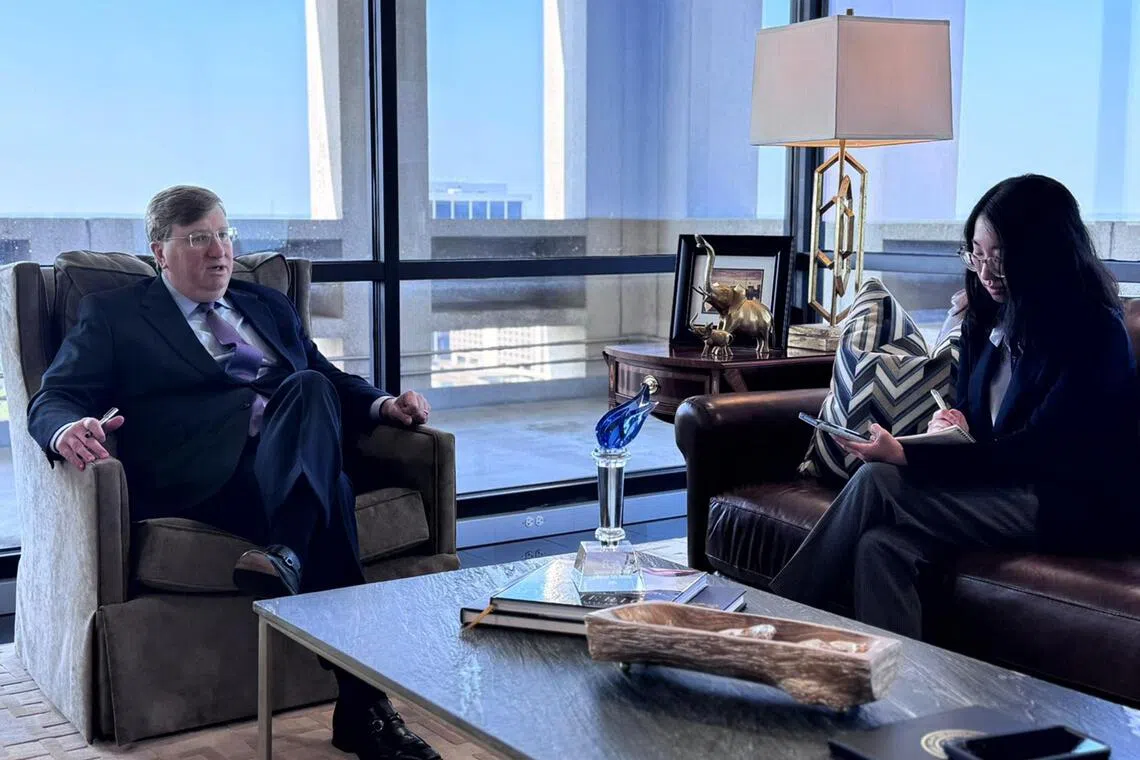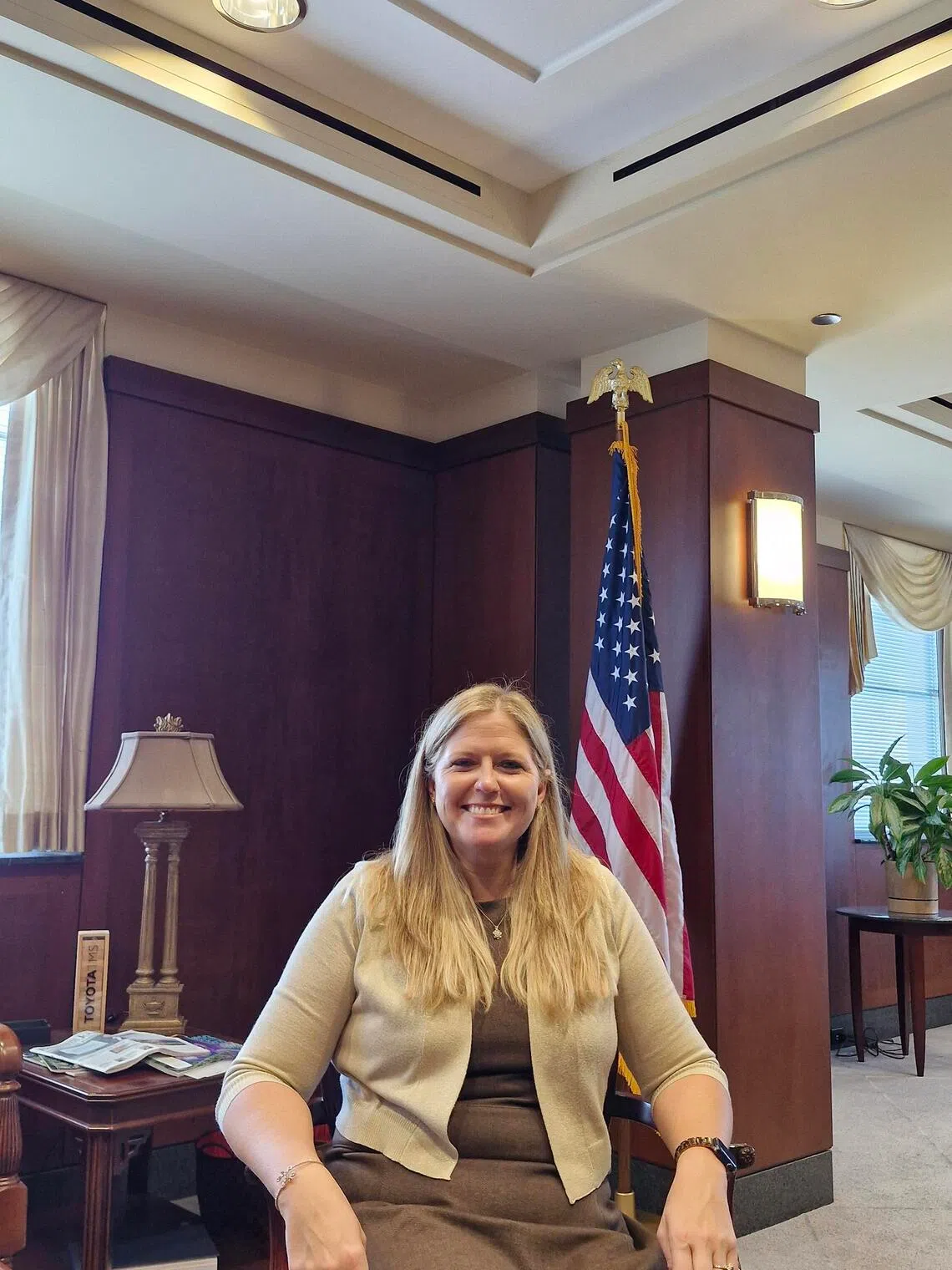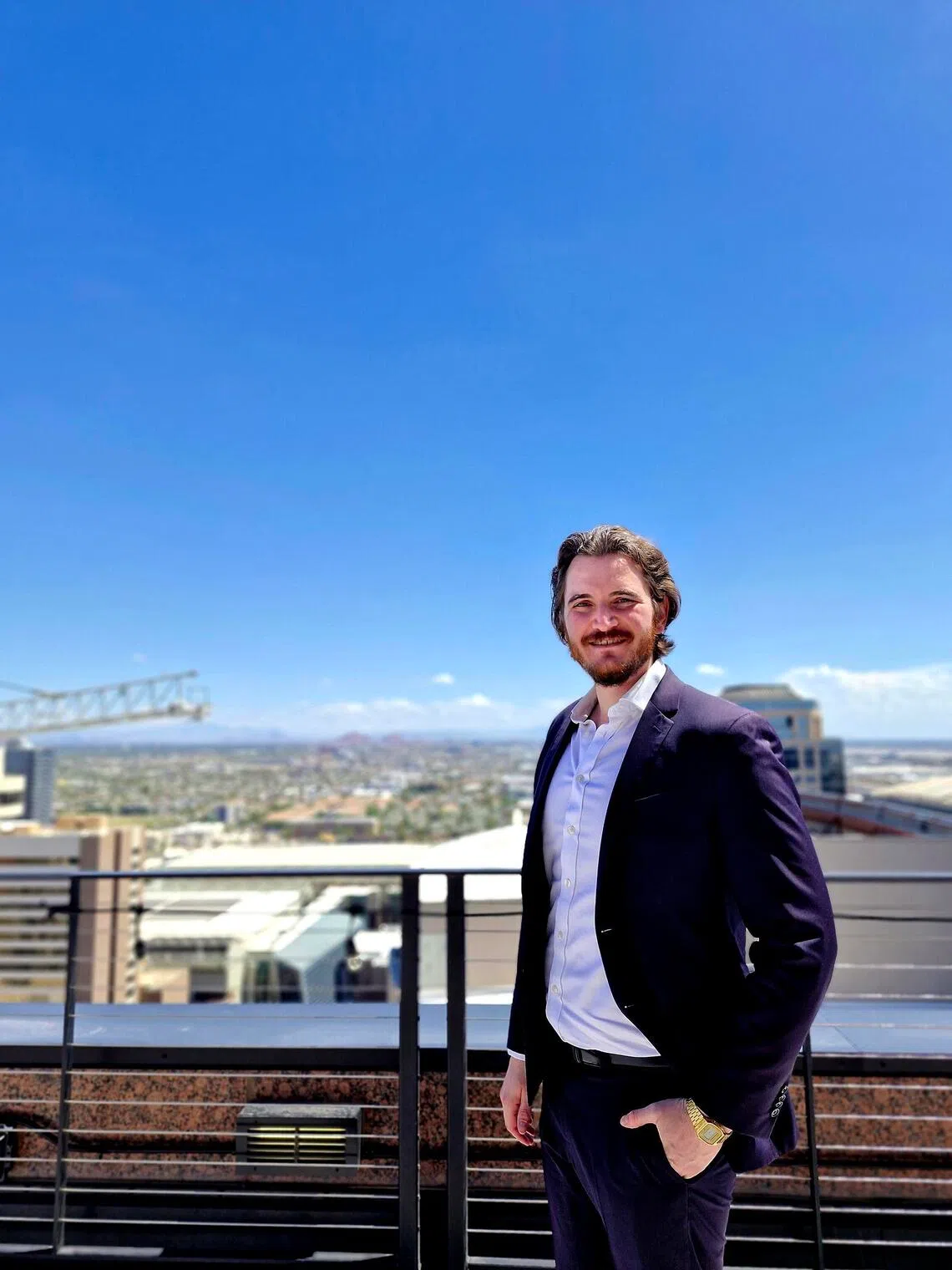Growing opportunities for firms in Arizona, Mississippi as they seek more foreign investments
Sign up now: Get ST's newsletters delivered to your inbox

Since Governor Tate Reeves took office in 2020, Mississippi has announced more than US$41 billion in new capital investments, with a large percentage of that in foreign direct investments.
ST PHOTO: SUE-ANN TAN
Follow topic:
JACKSON, Mississippi – It is one of the poorest states in the US and remains largely rural, but it is putting in a concerted effort to draw international companies to invest in it.
One of the global companies that have heeded the call is Japanese car manufacturer Nissan.
Less than an hour outside Mississippi’s capital, Jackson, is a Nissan plant that is set to become the multinational company’s intelligent factory to support future electric vehicle (EV) production.
There are big plans for the plant’s future in Mississippi, where it has been situated since 2003.
Nissan is not the only multinational corporation to land in the state. Toyota also has a plant in Mississippi, alongside other large manufacturers like Siemens Energy.
It is not just global firms, but also US tech giants that have landed in the state, which helps to develop a business ecosystem that can attract more foreign investments.
Most recently, Amazon Web Services announced plans to invest US$10 billion (S$12.9 billion) in Mississippi to build two data centre complexes, which the state hopes will eventually transform Jackson into the next tech hub of the American South.
With this announcement, the state also hopes to grow its tech industry alongside traditional manufacturing capabilities, life sciences, aerospace and defence, and forestry, said the Mississippi development authority’s deputy chief economic development officer, Mr Christian Lockamy.
It joins other states, such as Arizona, that are offering more opportunities and incentives for global companies in a bid to draw foreign direct investment to its growing cities.
The Straits Times visited these two states as part of an international reporting tour organised by the Foreign Press Centre of the US State Department. The tour hosted three journalists, one each from Europe, the Middle East and Asia.
The Mississippi transformation
While Mississippi is the poorer and smaller of the two states, with a population of only three million, it has increasingly put in place measures in the last five years to incentivise companies to choose it as a landing pad in the US.
The state, which is considered part of America’s “Deep South” alongside areas like Alabama and Louisiana, is about a 2½-hour flight from federal capital Washington.
Mr Lockamy said the state prioritises speed-to-market for companies, with some US$140 million invested into site development and readiness so that companies can quickly begin operations.
In 2024, it was reported that the state has 30 shovel-ready sites available.
The state’s investments into its growth have also increased rapidly, from US$1.63 billion in 2020 to nearly US$17.7 billion so far in 2025.
“We rode the EV battery wave... We’ve ridden the data centre wave... And now foreign direct investment is hands down the third leg of that (growth),” Mr Lockamy said.
“And we’re not seeing that slow down. We’re seeing many companies that, regardless of the tariff conversation, see that they can make money in the US, and are still looking for a place to set up shop.”
Reuters reported in July that some companies are looking to expand their presence in the US to mitigate the impact of the tariffs announced by US President Donald Trump. They include LG Electronics, Honda, drugmaker Astrazeneca, pharmaceutical company Roche and Samsung Electronics.
But unpredictable US border and immigration policies have also thrown a spanner in the works, with more than 300 South Korean workers detained at a site in Georgia at an electric car battery plant run by two South Korean companies, Hyundai and LG. The immigration raid earlier in September was one of the largest such raids under the current presidency to date.
South Korean President Lee Jae Myung noted in response that South Korean companies will be “very hesitant” about investing in the US, the BBC reported.
Still, Mississippi is definitively open for business, state officials said. Since Governor Tate Reeves took office in 2020, the state has announced more than US$41 billion in new capital investments, with a large percentage of that in foreign direct investments.
“So we’ve had companies from Asia, companies from Europe, and companies from all over the world investing in Mississippi, and it’s been an exciting time,” Mr Reeves told ST.
“We have been red-hot when it comes to attracting investments and creating jobs, and we think as more foreign direct investments come into our country, and as more US companies decide to manufacture more in the United States, we are well positioned to benefit from that.”
He added that the pipeline of projects is larger now than it has ever been in Mississippi’s history, with more than US$100 billion in potential projects.
“We’re having active conversations with companies around the world,” he said.
Mr Reeves also mentioned the state’s trajectory in increasing the skills of its workforce, known as the “Mississippi miracle”, where its student literacy rates shot from near the bottom of education tables to above average.
Workforce training is one of the state’s priorities to ensure that companies have a pipeline of talent to tap, experts said.
Dr Courtney Taylor, executive director of AccelerateMS – the state’s office aimed at enhancing workforce development – said there is a talent gap, especially when it comes to jobs like technicians, plumbers and electricians, which are increasingly needed in projects like building data centres.

Dr Courtney Taylor said that companies also work with community colleges and universities to ensure students are employable.
ST PHOTO: SUE-ANN TAN
But the challenge is also preparing students for jobs of the future, such as integrating artificial intelligence into construction work.
To equip students with industry-specific skills, companies also work with community colleges and universities to ensure students are employable, she said.
Arizona’s attractions to businesses
Over in Arizona in the south-west region of the US, also known as “Grand Canyon state” for its famous gorge, a bioscience and healthcare hub is growing alongside the established semiconductor landing pad that the state has become.
The state is already home to two facilities of Mayo Clinic, the US’ private academic and medical centre. It hopes that a healthcare and medtech cluster will form around Mayo Clinic’s presence, attracting more companies in the sector along the supply chain.
Meanwhile, it has also seen more than US$200 billion in investments related to semiconductors in the last five years.
The largest foreign direct investment recently was Taiwanese chipmaker TSMC, with its total investment in the US expected to reach US$165 billion, according to the firm’s media statement in March.
The state’s capital, Phoenix, is also now the fifth-largest city in the US, said Mr Caleb Rhodes, vice-president for international trade and investment at the Arizona Commerce Authority.

Mr Caleb Rhodes cited Arizona’s consistent weather all year round and power grid reliability as part of the state’s attractions.
ST PHOTO: SUE-ANN TAN
He also cited its consistent weather all year round and power grid reliability as part of the state’s attractions, with solar power being one of its energy sources.
Arizona has also become more active in Asia, with Singapore ranking among its top 15 trading partners.
An important aspect of the state is that politics is kept separate from economics, said the commerce authority’s executive vice-president, Mr Patrick Ptak. This is vital for a “purple” state where its governor is a Democrat but its state legislature has a Republican majority.
“In Arizona, economic development is a non-partisan activity,” he said, adding that he has not seen a slowdown in the pipeline of projects despite the turbulent political climate in the US.
He noted that companies outside the United States indeed grapple with the changing situation around tariffs, but added that if they are looking for opportunities in the country, Arizona remains an attractive place for them.
Mr Rhodes said: “I don’t want to get into speculating, but I think the fundamental business case, or economics of it, may not have changed. I think a lot of these (projects) were planned, and Arizona is a competitive, compelling place to do business in.”


